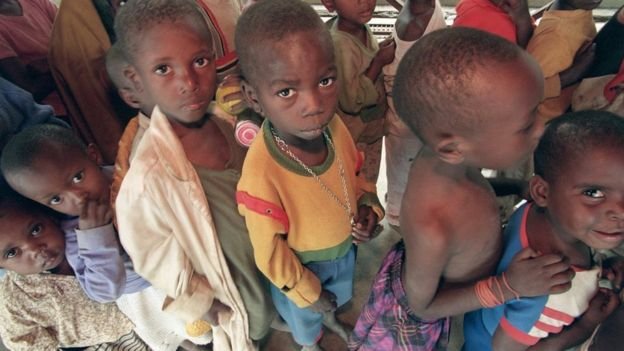Headlines News
14,000 malnourished children in Borno IDP camp gets UNICEF support

14,000 children suffering from acute malnutrition in Internally Displaced Persons (IDP) camps in the Mafa local government area of Borno state have been provided with support by the United Nations Children Education Funds (UNICEF).
Nura Shehu, UNICEF’s Nutrition Assessment Officer for Borno and Yobe states, revealed this to journalists on Thursday at the Government Girls Arabic Secondary School (GGASS) IDP camp, Mafa Headquarter of the state’s local government area.
He stated that UNICEF’s Rapid Response Mechanism (RRM) intervention in the region enabled it to deliver life-saving assistance to address the immediate needs of vulnerable populations, especially women and children.
He said, “We have 14,000 cases of acute malnutrition; 5000 of them suffer severe acute malnutrition, while 9000 suffer moderate acute malnutrition. Our intervention has helped to bring succour to the affected children,” he noted.
He stated that under the global agency’s Rapid Response Mechanism, 6-59-month-old children suffering from severe acute malnutrition without difficulties were admitted to the camp’s healthcare facility, while their counterparts with complications were admitted to healthcare institutions outside the camp.
Furthermore, UNICEF’s Water Sanitation and Hygiene Specialist, Dr. Loris Salihu, highlighted at the Outpatient Therapeutic Programme (OTP) that the camp is home to over 38,000 people and that only one of the four boreholes at the camp is operational.
“Our intervention was lifesaving assistance to the entire camp; it was one borehole that was functional before we moved in to rehabilitate an additional four boreholes with support from the UN Central Emergency Response Fund and EU Civil Protection and Humanitarian Aid Operations (ECHO).”
“Four boreholes with 14 tap heads each have a capacity and yield of 60,000 littles per day and 200, 000 litters per day, which is below the UN standard of 15 litters per person,” he said.













